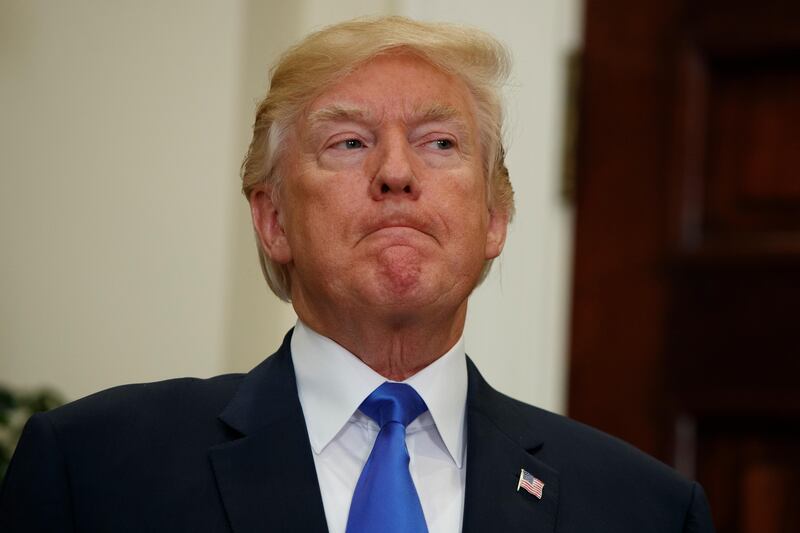At his first inaugural presidential address in 2009, Barack Obama pledged to “extend a hand” to Iran if its leaders were willing to “unclench” their fists. The Iranians did no such thing. Yet in his second term, president Obama went ahead and shook their clenched fists. He ignored the concerns of America’s Arab allies and made a series of overtures to Tehran. But now, finally, with a new leader in Washington, there is apparently a better understanding of the destabilising role Tehran plays in the region.
Washington's failure to change Iran's behaviour did not deter president Obama from making concessions. He ended his presidency having rewarded Iran with a nuclear deal. It was a gamble rooted in the belief that Iran could be induced into becoming a responsible member of the international community. Gulf Arab states warned that this was delusional at best, and deadly at worst. Sidelined at the time, they have seen themselves vindicated in the two years since the Joint Comprehensive Plan of Action was signed by the US, France, Russia, Britain, China and Germany.
But as these pages have pointed out, Iran has used the nuclear deal to enrich itself without complying with the core demand that it dismantle its weapons programme. The chief of Iran's Atomic Energy Organisation announced last month that his country still retained the capability to "resume 20 per cent enrichment" of uranium within five days. How is this possible if Iran is complying with the nuclear deal?
______________________
Read more from Opinion
[ Editorial: Only Qatar can end the crisis it triggered ]
[ Editorial: There is no room for colonialism in today's world ]
[ Editorial: Obama's failure to enforce his "red line" emboldened and strengthened Al Assad ]
______________________
Washington is belatedly learning that Iran's conduct cannot be changed with bribes. Earlier this month, Nikki Haley, the US ambassador to the UN, presented a case for Washington's withdrawal from the nuclear deal. And now president Donald Trump is weighing a more aggressive plan to counter Iran's threat in the Gulf. The revised strategy, devised by defence secretary Jim Mattis and secretary of state Rex Tillerson, will likely be unveiled before the end of the month.
Iran has reverted to its old sport of bullying, spreading terror and destabilising states. Containing it must become one of the top foreign policy priorities of Mr Trump if its mischief making is to be stopped. As Dr Anwar Gargash, our Minister of State for Foreign Affairs, warned this week, Iran is preparing to push Arab states into a "descent into chaos". It is exploiting the regional rift with Qatar, whose leadership has sadly fallen under the spell of Tehran, while abetting the crimes of Bashar Al Assad's government in Syria. Last week, it defied the world to carry out tests of a new generation of ballistic missiles. Still, it is not too late to stop Tehran, not least because Iran is not yet a nuclear weapons state. This is something the world must never forget. For now, any action that curbs Iran's action is welcome.
Follow The National's Opinion section on Twitter





